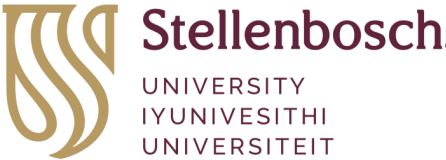
By: Rozanne Engel, Corporate Communication
Dr Margreth Tadie, a lecturer in the Process Engineering Department at Stellenbosch University (SU), is one of 30 scientists in Africa to have been selected for the FLAIR (Future Leaders – African Independent Research) research fellowships. FLAIR is a two-year programme of The African Academy of Sciences (AAS) and the Royal Society, with support from the United Kingdom’s Global Challenges Research Fund (GCRF), and is designed to help talented early-career researchers whose science is focused on the needs of the continent, establish independent careers at African institutions and ultimately, their own research groups. Each scientist receives £300,000 (R5 472 003) over the two-year fellowship to help them with independent research. She was part of a competitive pool of 700 applicants across the continent.
“It’s such an honour to receive this fellowship from them. What they are about is supporting African research and supporting excellent researchers in Africa to be able to become leaders within their respective research fields. I’m passionate about mineral resources in Africa and I’m passionate about what they can do for the continent. There is such incredible wealth in Africa, yet when you look at Africa, we are one of the poorest continents in the world and I’m not happy with that. My heart is really into looking at what we can do better with our resources for our continent and our people.”
Dr Tadie says she recognises the significant impact this fellowship will have on her teaching at SU and hopefully inspiring other young engineers in Africa.
“I am very conscious of being in the minority within the mining industry, but I’m so open to that challenge, because we need more role-models. Where women have paved the way in other industries, I am very conscious of the fact that I have the opportunity to be that for those who are coming up behind me. We need more women who are brave enough to go in and who are brave enough to do cutting edge research, to be brave enough to be on the mines and do good work. I hope to impart that heart for responsible mining and responsible engineering.”
Dr Tadie’s research project will specifically look at the waste left behind from gold mines in South Africa and she aims to develop a framework strategy that looks at sustainable ways to extract minerals so that less waste is created in the process. She hopes that this framework strategy will be applied to different sites and eventually influence policy change within the mining industry.
In 2017, Statistics South Africa reported that the mining industry is slowly declining on a yearly basis. However, the mass amount of waste left behind continues to have a huge environmental impact on the mining communities in South Africa, and the rest of Africa.
“There are tons of waste heaps that are a legacy of the success of gold mining and those waste heaps are taking up land and are creating pollution. The environmental impact is quite significant and this project is aimed at finding ways and developing a process that will deal with this waste.”
For Dr Tadie, doing research on mining waste is not just motivated by her academic aspirations but it has also been fuelled by her deep personal experiences of growing up on the dusty mines in her home country of Zimbabwe.
“In many ways mining is who I am. I grew up in a mining community and for the people who live within these communities the mine is their life. Your father works in the mine, you work in the mine, your children work in the mine and no matter where you are – whether you are the lowest or highest paid, the mine becomes you. Although I am in academia now and not physically on the mine, I still identify with the mine and hope that my research can help change mining policies within Africa.”
Dr Tadie’s father has been working on mines for over forty years and she says being exposed to that environment all her life has had a huge impact on her motivation to help change the negative effects of the industry.
“I grew up next to big heaps of mining waste and seeing all the dust that’s formed from that fine material, living in landscapes where the vegetation has deteriorated due to mining activities, stayed with me. Some of the significant negative impacts of mining can be prevented because a lot of it is policy and technical strategy.”
The need for programmes such as FLAIR:
FLAIR is one of six postdoctoral programmes being implemented through the African Academy of Sciences.
“We recognise that well-planned postdoctoral programmes are critical in promoting scientific and research excellence and leadership in Africa,” says Professor Felix Dapare Dakora, President of the African Academy of Sciences. “We want to be catalytic in inspiring African institutions to critically think about the role of and defining postdoctoral programmes that suit their needs and purpose and can be instrumental in driving socio-economic development on the continent.”
”The scientists selected as FLAIR grantees represent the next generation of leading African scientists, and we are incredibly proud to be part of a programme that is investing in them at such a crucial point in their careers,” says Professor Richard Catlow, Foreign Secretary of the Royal Society. “Fostering science and innovation for social benefit and prosperity is key to the wellbeing of any society, and investing in Africa’s scientific talent holds the greatest potential to tackle global challenges and improve quality of life.”
The next round of FLAIR applications closes on 15 May 2019.
Photo caption: Dr Margreth Tadie.
Photo credit: Stefan Els (SU).



